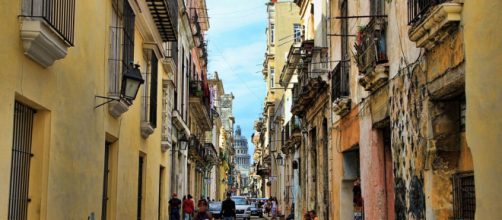According to the State Department, Secretary of State Pompeo announced that President Trump's administration will no longer suspend Title III. Effective May 2, the right to bring an action under Title III of the Libertad Act will be implemented in full. According to CBS, the Cuban Liberty and Democratic Solidarity Act, also known as Libertad was passed in 1996. Title III of the act was suspended in hopes it would put pressure on Cuba to shift more rapidly to democracy. It has been more than 22 years that the Cuban Americans and Americans have been waiting for justice and the right to file suit against Cuba for confiscated property and assets by the Castro regime.
The 22-year wait
President Trump and his administration live in today's world and it is very clear that Cuba has not changed its behavior in the last 22 years. The Cuban government continues to repress its people, keeping them from basic freedoms and holds them back from achieving their dreams. Secretary Pompeo noted that the Cuban government embraces the Communist Party as its only political party and anyone who opposes it in any way gets harassed, beaten, and/or detained. Cuba's dictatorship threats the security and stability of other countries in the region, as well as our own. An example of this is their involvement in Venezuela, as their military intelligence and state security services support keeping the failed Maduro regime in power.
Title III lawsuits
By lifting the suspension on Title III the Cuban Americans and Americans will have a chance for long-awaited justice and the relief of compensation on property seized during the Castro regime. It will enable the filing of lawsuits for the first time against those who seized property and robbed assets during Castro's rule. Secretary Pompeo added that persons or companies doing business in Cuba not only could be connected to property stolen unrightfully but could very well be encouraging Cuba's abuse of their own people. He encourages friends and allies to stand with the Cuban people and join the United States in advancing human rights, openness and good government.
Cuba policy changes
National Security Adviser John Bolton announced; according to CBS, just hours after Secretary Pompeo announcement on Wednesday, that the Department of the Treasury made regulatory changes to the limits on the amount of remittances Cuban families in the United States could send back to Cuba. The new limit is $1,000 per person per quarter. He also stated that the United States will further impose restrictions on “non-family” travel to Cuba, in order to cut tourism money Americans spend in Cuba. This is not the first time President Trump changed policies concerning Cuba. In 2017, restrictions were placed on business and personal travel to Cuba. Also at that time, the administration listed about 180 businesses in Cuba that were barred from doing business with United States citizens and companies.


